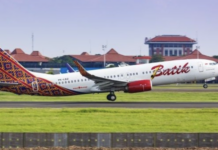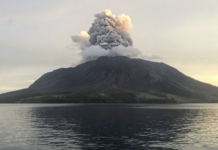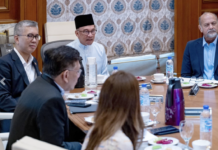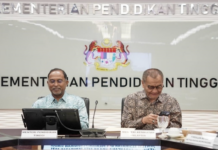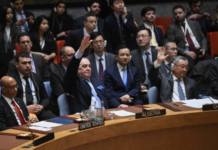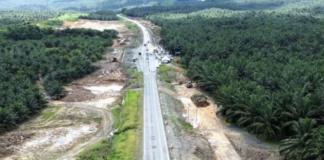PUTRAJAYA, Aug 8 — As ASEAN turned 54, Malaysia’s Senior Minister of Foreign Affairs Datuk Seri Hishammuddin Tun Hussein said the unity of ASEAN has enabled it to collectively overcome challenges ranging from global financial crises to climate change to natural disasters and now, the COVID-19 pandemic.
In his message in conjunction with the 54th ASEAN Day today, Hishammuddin said the impacts of COVID-19 on lives and livelihoods were devastating, from the overstretched capacity of the healthcare sector to the loss of earnings.
“ASEAN will never relent and (will) remain steadfast in fighting the COVID-19 pandemic shoulder-to-shoulder with the rest of the world to show humanity will overcome this great challenge together and emerge stronger,” he said.
Hishammuddin said the emergence of new COVID-19 variants and the prospect that the disease would become endemic required governments all over the world to rethink their strategies.
“As no country or region has the same capabilities and approaches in dealing with the pandemic, a ‘cookie-cutter’ method may not work. Therefore, efforts to be undertaken must be dynamic and flexible, befitting the local needs and criteria,” he said.
Since early 2020, Hishammuddin said, ASEAN had taken proactive steps through a series of engagements and information exchanges among member states and external partners, with the purpose of enhancing regional capabilities in prevention, detection, response and readiness to address the outbreak.
He said ASEAN had implemented several strategies and frameworks to face the imminent rise of COVID-19, while mitigating its impact on its economy and ensuring the well-being of the people.
During the Special ASEAN Summit on COVID-19 in April 2020, ASEAN leaders had unanimously agreed on the critical need for ASEAN to focus on tackling the economic and social ramifications of the pandemic, while working towards a post-pandemic recovery plan for ASEAN.
At the summit, Prime Minister Tan Sri Muhyiddin Yassin had proposed for ASEAN to formulate a regional economic recovery plan to coordinate a regional response, he added.
Subsequently, Hishammuddin said, the ASEAN Comprehensive Recovery Framework (ACRF), which serves as a guide for strategic directions and focus for pandemic recovery and support in ASEAN, was adopted during the 37th ASEAN Summit and related summit in November 2020.
He said that through ACRF several broad strategies were formulated which include enhancing regional health systems, strengthening human security, maximising the potential of intra-ASEAN market and broader economic integration, and accelerating inclusive digital transformation.
All these strategies were implemented within the existing frameworks of ASEAN with support from all its external partners, he said.
To accelerate the recovery following the pandemic, Hishammuddin said ASEAN had embarked on an effort to address the shortages of test kits, personal protective equipment and vaccines through the COVID-19 ASEAN Response Fund.
The fund, serving as a pool of financial resources, would assist all ASEAN member states in the detection, control and prevention of COVID-19 transmissions as well as ensuring the safety of medical workers and frontliners, he said.
Hishammuddin said the ASEAN Travel Corridor Arrangement Framework (ATCAF), whose objective is to revive and reinvigorate economic activities, was formulated to facilitate the movement of essential business travellers within ASEAN, while strictly observing health protocols.
Hishammuddin said the pandemic’s impact on mental health could no longer be ignored and it is another aspect that ASEAN is seriously looking into.
Acknowledging the importance of mental health, Hishammuddin said ASEAN and its external partners had embarked on several initiatives to share experience, exchange information on best practices, as well as formulate policies to tackle the issue.
ASEAN was working hand-in-hand with the public, experts and civil society organisations in finding the best possible solutions to mitigate the issue of mental health, he said.
Realising vaccination was the most viable tool to emerge victorious from the pandemic, Hishammuddin said ASEAN continued to call for fair and equitable vaccine distribution to all nations, an effort which has been repeatedly made in all of ASEAN’s engagements.
Established on Aug 8, 1967, ASEAN is a regional grouping comprising Brunei, Cambodia, Indonesia, Laos, Malaysia, Myanmar, the Philippines, Singapore, Thailand and Vietnam.





